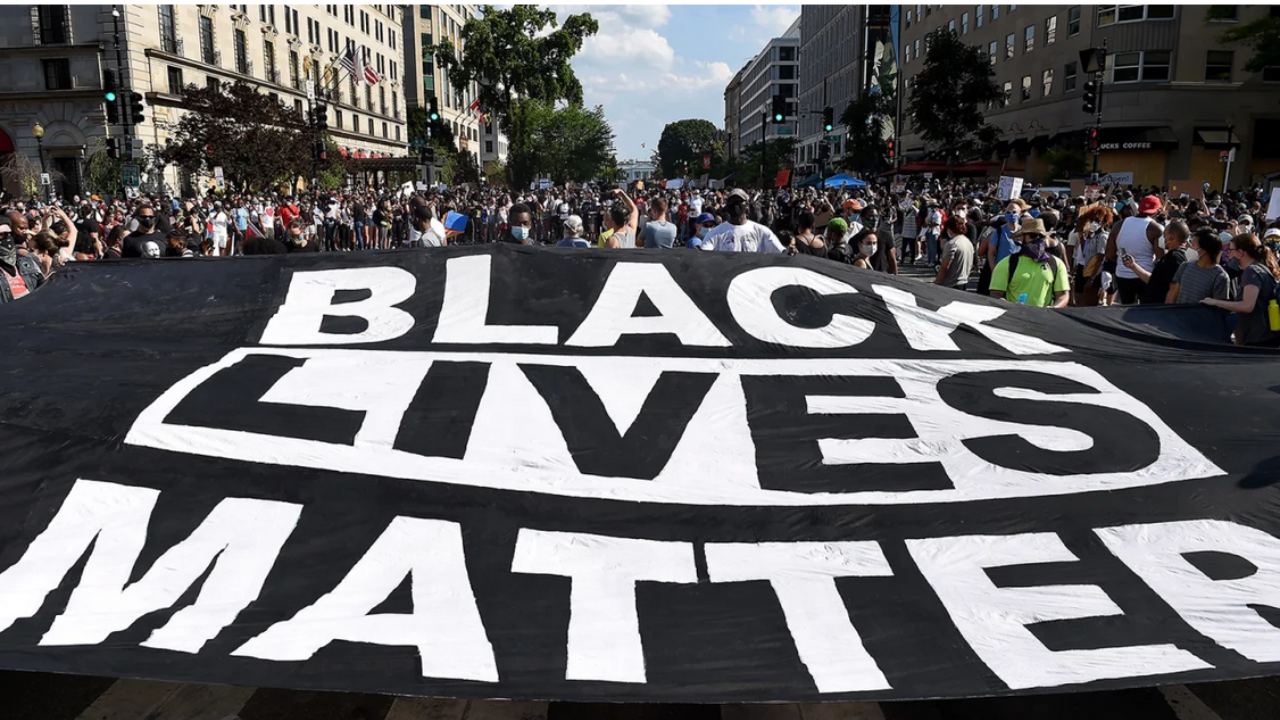Juneteenth: A day of joy and pain - and now national action
EEW Magazine Online // Black History // Juneteenth
In just about any other year, Juneteenth, the holiday celebrating the day in 1865 that all enslaved black people learned they had been freed from bondage, would be marked by African American families across the nation with a cookout, a parade, a community festival, a soulful rendition of “Lift Ev’ry Voice and Sing.”
But in 2020, as the coronavirus ravishes black America disproportionately, as economic uncertainty wrought by the pandemic strains black pocketbooks, and as police brutality continues to devastate black families, Juneteenth is a day of protest.
Juneteenth has been celebrated in Black communities across the country for 155 years, but for many white Americans, recent protests over police brutality have driven their awareness of Juneteenth’s significance.
Juneteenth marks the day on June 19, 1865, that Union soldiers told enslaved African Americans in Galveston, Texas, that the Civil War had ended and they were free. The Emancipation Proclamation freed the slaves in the South in 1863 but it was not enforced in many places until after the end of the Civil War in 1865.
The day is recognized in 47 states and the District of Columbia, according to the National Juneteenth Observance Foundation. Hawaii, North Dakota and South Dakota are the only states without an official recognition. And it is not yet a federal holiday. It took roughly 18 years after the assassination of the Rev. Martin Luther King, Jr. before his birthday was observed as a federal holiday.
“This is one of the first times since the ’60s, where the global demand, the intergenerational demand, the multiracial demand is for systemic change,” said Cornell University professor Noliwe Rooks, a segregation expert. “There is some understanding and acknowledgment at this point that there’s something in the DNA of the country that has to be undone.”
The abolition of slavery in the U.S. was followed by the birth of Jim Crow segregation, relegating many black Americans to poor, redlined neighborhoods with under-resourced schools. After the passage of landmark civil rights protections in the 1960s, decades of mass incarceration policy and employment discrimination eroded opportunities and economic stability for black people and families. All along, police brutality has been a fixture of the black American experience. And now, COVID-19 is killing black people at more than three times the rate that it kills white people.
Zebiyan Fields, 11, at center, drums alongside more than 20 kids at the front of the Juneteenth parade in Flint, Michigan. (Credit: Jake May / The Flint Journal via AP)
Much of the systemic racism and atrocities visited on black Americans have gone unanswered. This week, the Equal Justice Initiative, which in 2015 cataloged thousands of racial terror lynchings of black people by white mobs, added nearly 2,000 Reconstruction-era lynchings confirmed between 1865 and 1876, bringing the total number of documented lynchings to nearly 6,500.
“Our continued silence about the history of racial injustice has fueled many of the current problems surrounding police violence, mass incarceration, racial inequality and the disparate impact of COVID-19,” said Bryan Stevenson, director of the Equal Justice Initiative.
“We need a new era of truth and justice in America,” he said in a statement. “We must acknowledge our long history of racial oppression and then repair the damage this history has created — including the presumption of dangerousness that gets assigned to black people by police and others.”
Celebrations Friday will be marked from coast to coast with marches and demonstrations of civil disobedience, along with expressions of black joy in spite of an especially traumatic time for the nation. And like the nationwide protests that followed the police involved deaths of black men and women in Minnesota, Kentucky and Georgia, Juneteenth celebrations are likely to be remarkably more multiracial.
In Tulsa, a day ahead of a planned presidential campaign rally Saturday for Donald Trump, the Rev. Al Sharpton and Tiffany Crutcher, the twin sister of a black man killed by a city police officer in 2016, plan keynote addresses about the consequences of racial prejudice. Their commemoration will take place in the Greenwood district, at the site known as Black Wall Street, where dozens of blocks of black-owned businesses were destroyed by a white mob in deadly race riots nearly a century ago.
In Washington, D.C., and around the country, activists affiliated with the Black Lives Matter movement will host in-person and virtual events to celebrate the history of the black liberation struggle and amplify their calls for defunding police in the wake of high-profile police killings of African Americans.
As of Thursday, organizers with the Movement for Black Lives said they had registered more than 275 Juneteenth weekend events across 45 states, through its website.
Rashawn Ray, a David Rubenstein Fellow at the nonprofit public policy Brookings Institution, said many now view Juneteenth as an opportunity for education and to push to dismantle structural racism.
“There’s going to be a lot of people who are also going to double down on the push for reparations,” Ray said. “There’s no reason why black people have been the only group in the United States to be systematically discriminated against, legally, by the federal government and not receive reparations.”
Source: The Associated Press / AARON MORRISON and KAT STAFFORD







